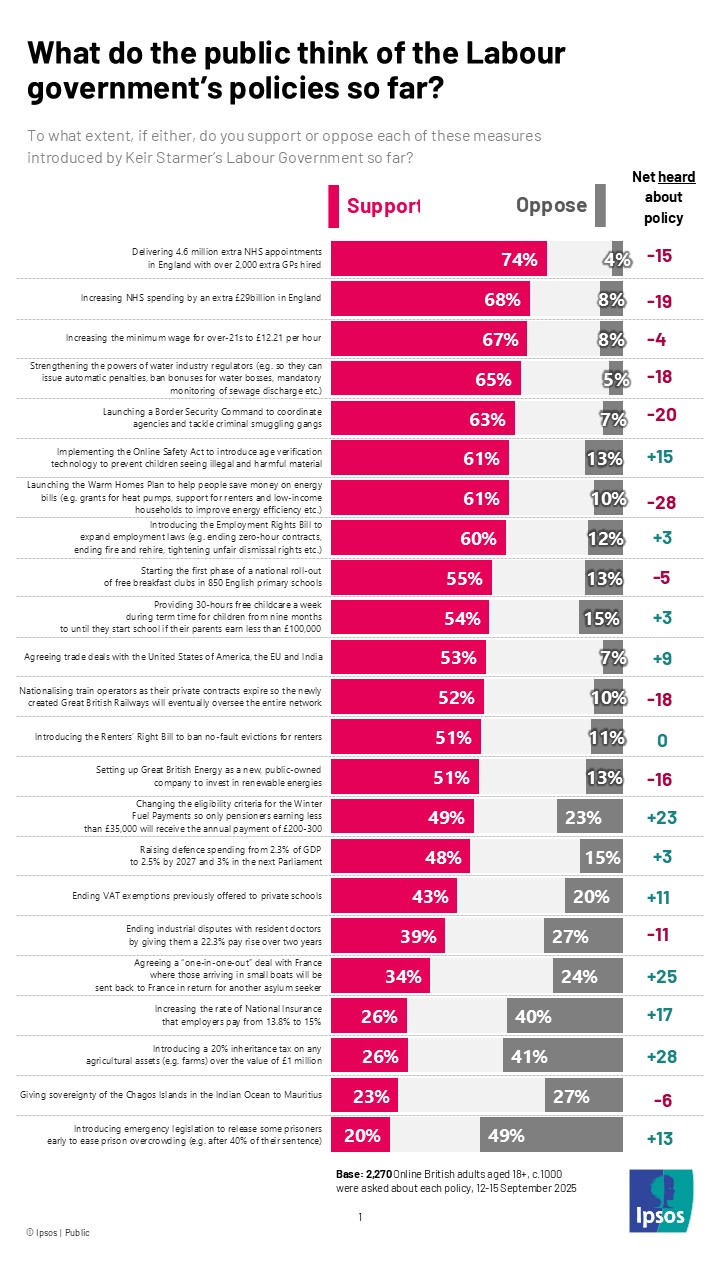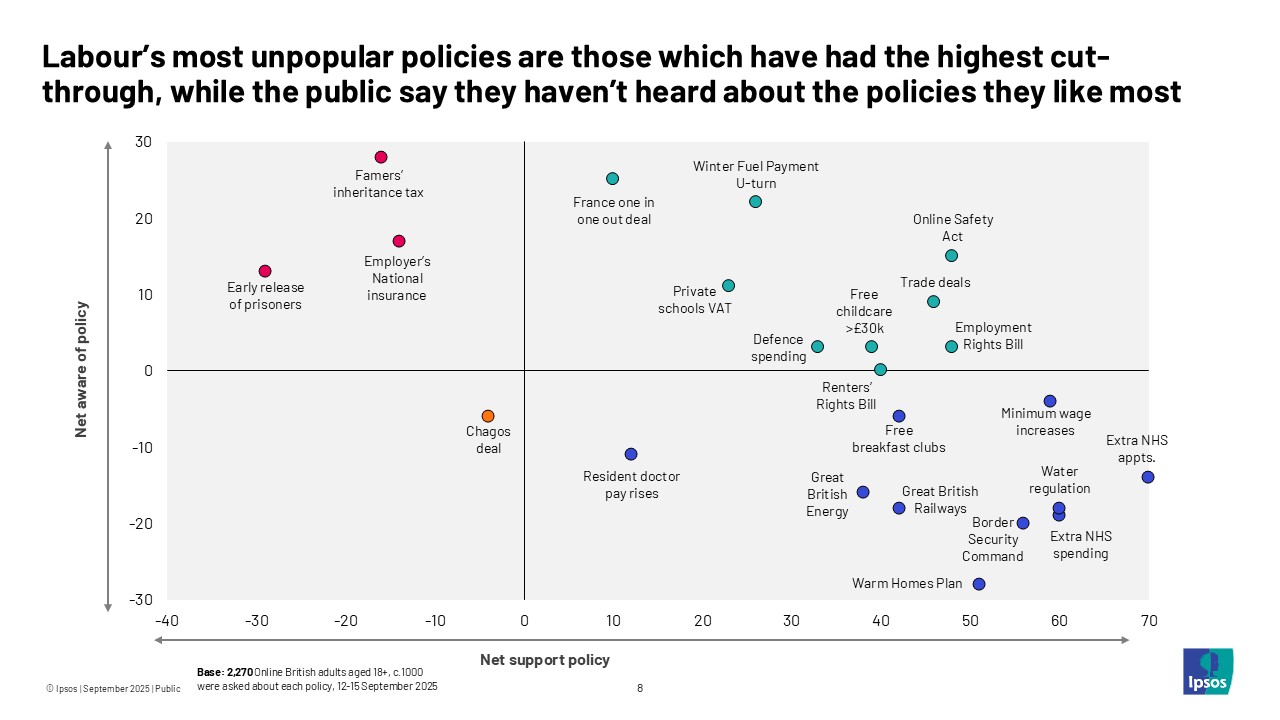Disconnect between public awareness and support for Labour’s policies, Ipsos poll finds
In a poll taken before the Labour Party conference, Ipsos asked a representative sample of British adults whether they supported or opposed different Labour policies in government and the extent to which they had heard of them. The results highlight a disconnect, where many Labour policies were popular but the public were not aware of them in large numbers.
Support for Labour policies

- Positive reception: The public expresses overwhelming support for bolstering the NHS, with 74% backing the plan for 4.6 million extra appointments and hiring over 2,000 additional GPs. There is also strong support (68%) for increasing NHS spending by £29 billion. The decisions to increase the minimum wage (67%) and strengthen water industry regulations (65%) follow closely behind with strong approval ratings.
- Areas of contention: Some initiatives, such as raising employers National Insurance and introducing inheritance taxes on agricultural assets, face more opposition than support. Legislative changes affecting pensioners’ Winter Fuel Payments are amongst the most contentious, with 23% in favour yet majority receiving opposition.
- Disconnect between public awareness and support for Labour’s policies: Labour’s most unpopular policies are those which have generally had the highest cut-through, with the public often less likely to have heard of the policies they like most.
- For example, the most popular policy on the list tested relates to extra NHS appointments which 74% supported and 4% opposed (net score +70). However, ‘net awareness’ was -14 because 40% had heard a great deal or fair amount about the policy but 54% had heard not very much or not at all.
- On the other hand, one of the least popular policies related to Farmers’ inheritance tax (net -15 as 26% supported and 41% opposed). Net awareness was +28 because 61% had heard a great deal or fair amount about the policy and 33% had heard not very much or nothing at all).
You can see the relationship between different Labour policies and awareness of them below. The data shows there are a range of policies Labour have in government that are popular but net awareness of them is below zero. These include policies related to NHS appointments, minimum wage increases, extra NHS spending, water regulation, border security measures, the warm homes plan and more.

Deputy leadership candidates
- General disinterest in deputy leadership contest: Three in five Britons (60%) say they don’t care who becomes the next Deputy Leader of the Labour Party, including 42% of 2024 Labour voters.
- Limited awareness of candidates: 18% of the public say they know at least a fair amount about Education Secretary Bridget Phillipson (rising to 31% of 2024 Labour voters). 16% of the public say that they know at least a fair amount about Lucy Powell MP, compared to 28% of Labour voters.
- Lack of strong opinions on leadership abilities: The public is largely uncertain or indifferent about how either candidate would perform as Deputy Leader, with the majority having no opinion or never having heard of them. Among 2024 Labour voters, 35% have confidence in Phillipson, whereas 30% believe Powell would do a good job.
- Influencing factors on perception of capability: One in three (33%) say it would be a sign they’d do a good job if a candidate for the Deputy Labour leader has openly criticised decisions made by Starmer’s government. 44% say it would be a good thing if the new deputy leader had experience working in public services, and 39% say it would be a good thing if they had experience working in business. 33% say it would be a good thing if they came from a working-class background.
Commenting on the findings, Keiran Pedley, UK Director of Politics at Ipsos said:
These findings show that one of Labour’s key challenges in government is communication. Labour is often better known for unpopular policies rather than more popular ones. Keir Starmer and his party will hope they are better able to communicate some of their more popular policies in the future as they attempt to turn their currently challenging poll ratings around.
Technical note:
- Ipsos interviewed a representative sample 2,270 Online British adults aged 18+, c.1000 were asked about each policy from the 12th-15th September 2025.
- Data are weighted to match the profile of the population. All polls are subject to a wide range of potential sources of error.



